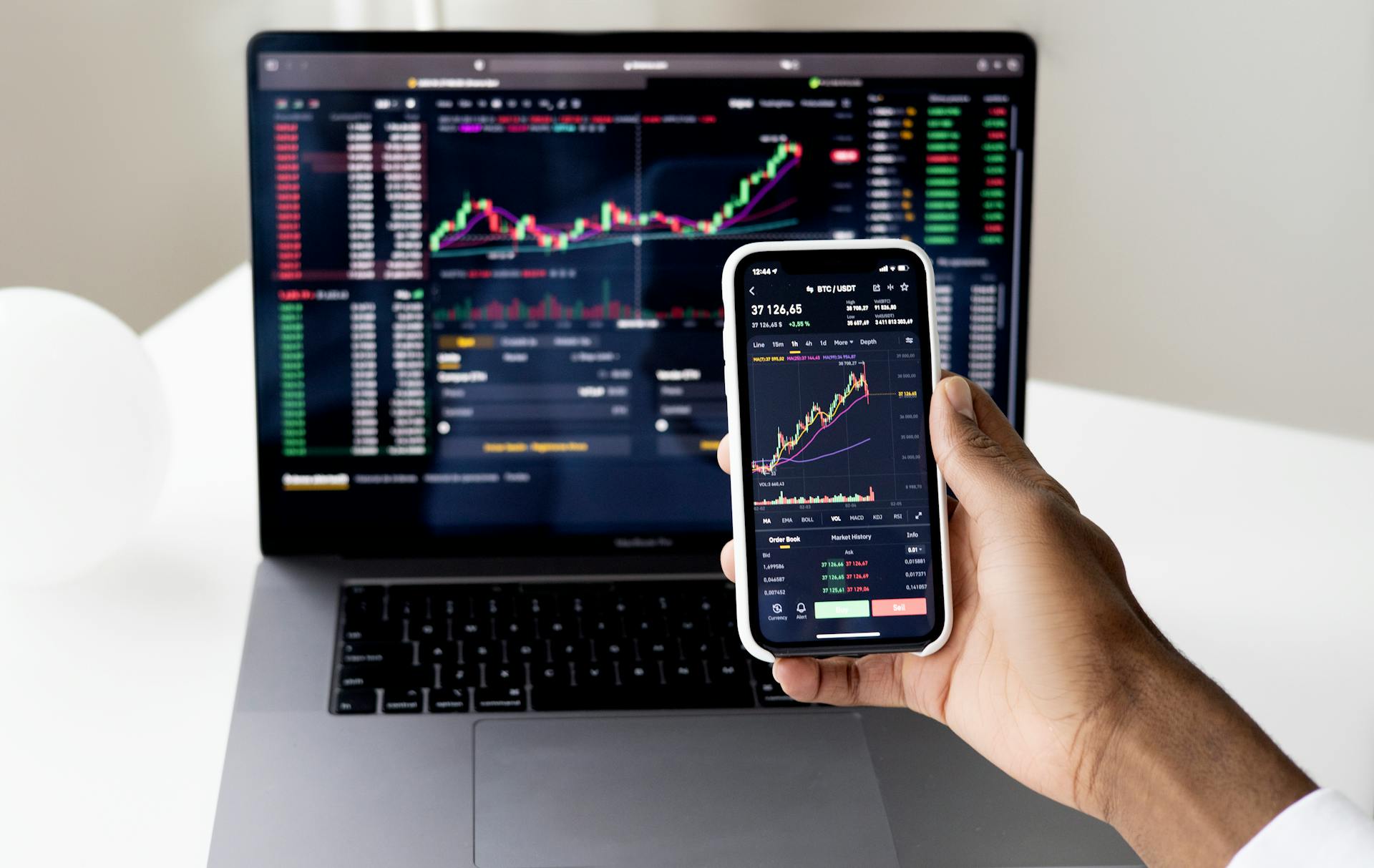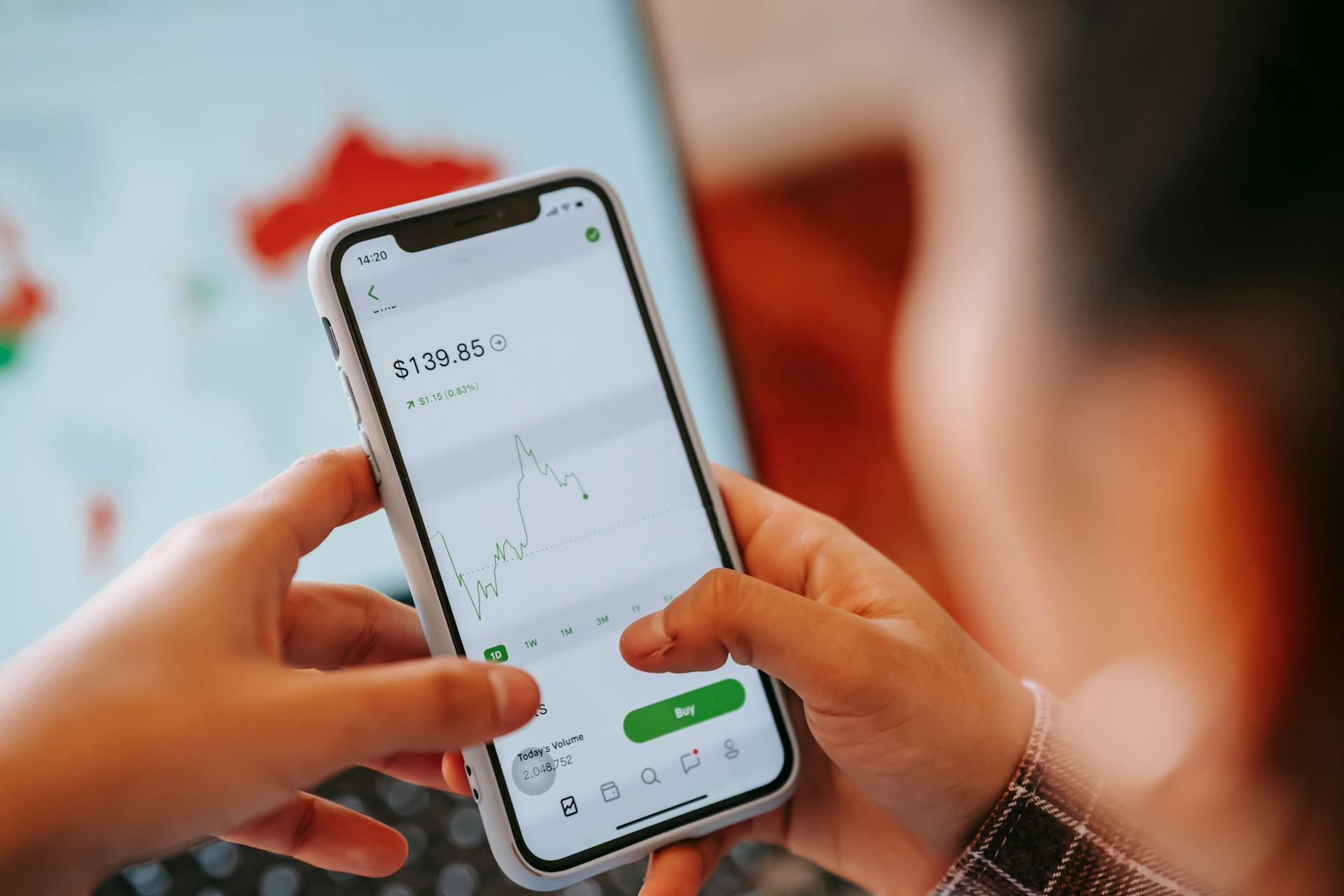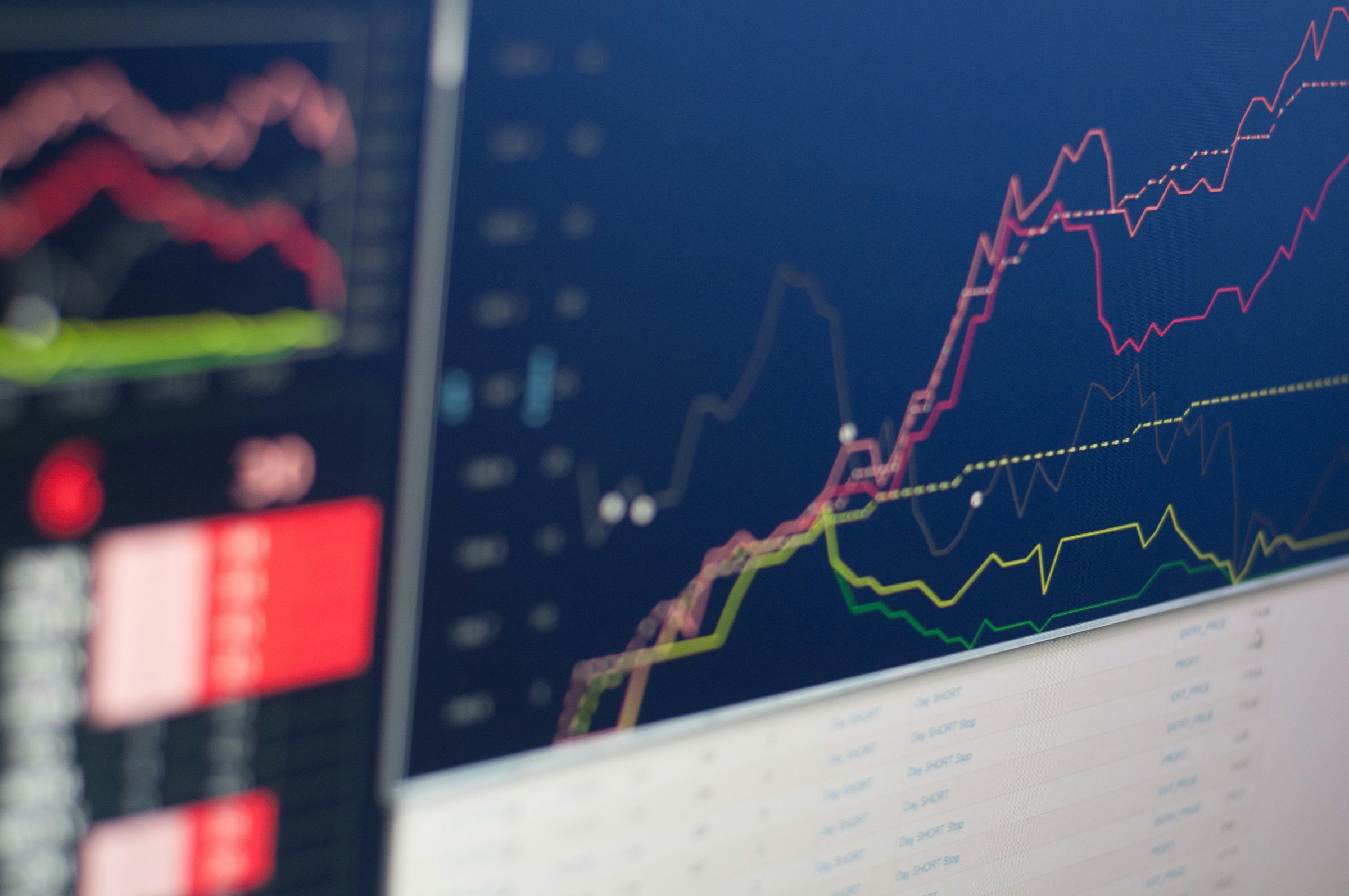
Using a futures trading simulator is a great way to brush up on your strategy, as well as a way to think about the future movements of key stock sectors. But what does the future really hold for the market? What kind of changes should investors expect?
In this guide, you’ll gain a better view of the trading landscape. This includes advances in technology and trading tools, shifts in market dynamics, and the impact of regulatory changes on the market.

Technology and Trading Tools
Technology is sure to have an ongoing impact on the way investors interact with the market. Here are some of the developments that are sure to drive change in the trading landscape in the very near future.
AI and Automation
The impact of artificial intelligence (AI) cannot be overstated. AI-powered tools will give traders greater ability to analyze market data, evaluating past trends and extrapolating this data to predict future returns.
This same trading data can be used to drive automated trading decisions, wherein investors execute trades through a hands-free algorithm — basically relying on a sophisticated computer to actively manage their portfolios.
As a result, traders can expect to execute trades with a higher degree of precision, all while eliminating “human” market forces such as hype and investor sentiment.
Futures Trading Simulators and Other Tools
Paper trading simulators already give investors the opportunity to practice trading strategies without having to risk real-world currency. Futures trading simulators, in particular, can be useful for futures traders, where the underlying investment can be used to hedge other investment decisions or benefit from future price movements.
Again, these types of trading tools are already in use, and many investing platforms offer some kind of stock simulator. But they also tend to be limited, not always reflecting real-world conditions.
This is another case where AI can add another layer of realism to these trading simulators. Traders will be able to practice their strategies in a simulated environment that more closely matches the real-world conditions of the stock market.
Blockchain Technology
Most investors associate blockchain technology with the world of cryptocurrency. However, blockchain technology can also be used for other types of assets. The clearest advantage of blockchain technology is that it presents a decentralized way of conducting digital trades, which reduces the need for intermediaries.
This may result in cheaper trades for investors since blockchain applications will reduce the need for brokers and account managers.
Additionally, blockchain technology can be used to facilitate cross-border transactions, opening up new avenues for international trading. And by its very nature, blockchain creates visibility, which reduces the possibility of fraud among traders.
“Gamified” Markets
Evolving forms of financial technology (“FinTech”) are already “gamifying” the world of finance. This simply means that certain apps are designed to make financial activities more enjoyable, as well as less involved than ever before.
For instance, an app called Acorns will integrate with the user’s bank account. Acorns will round up every purchase to the nearest dollar and then put the excess into an exchange-traded fund (ETF).
Granted, this kind of “hands-off” investing approach does little to educate users about the world of investing, but it can still encourage young adults to jumpstart their investment portfolio.
Market Dynamics and the Future
In addition to these technological advancements, traders can expect to see shifts in market dynamics as well. Here are three key trends that will impact the market in the future.
Multi-Asset Trading
Investors who are hungry for better risk management strategies will turn to multi-asset trading. This means that financial systems will adapt in order to support the buying and selling of various asset classes — not just stocks but also bonds, cryptocurrencies, and even tangible assets such as real estate.
For example, fractional real estate investing allows buyers to purchase shares in a larger property. As a result, investors may be able to build diversified portfolios that contain securities as well as partial ownership of real estate assets.
However, because these assets come in the form of shares, there will be greater liquidity and, in some cases, the potential to trade across asset classes.
Retail Trading and the Market
Retail trading simply refers to investors making trades for their own personal gains. This differs from institutional trading, where trades are conducted on behalf of a group or institution. Retail trading saw a boost during 2020 but will likely continue to rise. As a result, the market will be more strongly influenced by individual traders.
Why is retail trading expected to rise? Social media channels and apps like Discord have created whole communities of retail traders who rely on these networks to adjust their positions and make trading decisions, even if they lack the experience of “professional” or institutional investors.

Rise in Commodity Trading
Recent geopolitical events have driven the volatility of commodity trading. Thus, there has been a rise in demand for commodities such as oil or natural gas, though prices remain highly volatile.
While it’s unclear how the global landscape will continue to influence commodity prices, investors will likely take advantage of recent volatility and invest more heavily in energy commodities and other raw materials.
Increased Focus on Foreign Markets
Partly driven by technological improvements, investors will have greater access to foreign markets. Overseas stocks can be a path toward diversification since these companies are not influenced by the same socioeconomic forces as American businesses.
Foreign markets include stocks but can also include the foreign exchange market. Companies like TradeView already provide a path for investing in the foreign exchange market, and geopolitical instability may cause price swings that favor foreign investors.
Changes in Regulatory Policies
Traders should also be aware of an evolving regulatory environment, which can affect the performance of individual companies as well as the stock market itself. There are two key elements that traders should be mindful of when making trading decisions.
Regulatory Compliance Surrounding Technology
The meteoric rise in AI-based tools and blockchain technology will likely prompt additional scrutiny by regulatory bodies such as the Securities and Exchange Commission.
Policies may evolve to protect investors from new risks imposed by these technologies, as well as ensure the safety of users who rely on these systems to make and monitor investments.
Similarly, technology will open the doors to younger investors who perform trades through online apps. Recent years have already seen calls for increased scrutiny and enforcement of age limits, especially in the wake of a young investor’s suicide.
In the future, online trading platforms will proliferate, but there will be greater emphasis on protecting users from life-changing risks and poor investment choices.
Environmental Social Governance (ESG) Stocks
Businesses are under increased pressure to pursue ethical, sustainable solutions in the way they handle business. With the advent of ESG criteria, investors will have a greater opportunity to put their money where their values are by investing in companies that share their passion for the environment or an equitable workplace.
At the same time, shareholder pushback over certain social policies may prompt companies to be more transparent about which ESG criteria they plan to adopt.
As a result, traders may see greater diversity among stocks, with some companies choosing to accent environmental sustainability while others accenting social equity and inclusivity.

Stay on Top of Your Future
At Gorilla Trades, we believe knowledge is power. That’s why our members get access to advanced tutorials and a whole library of research tools and exclusive content. Sign up for a free trial today, and we’ll send you 30 days of free stock picks so you can experience the difference a stock platform can make.
